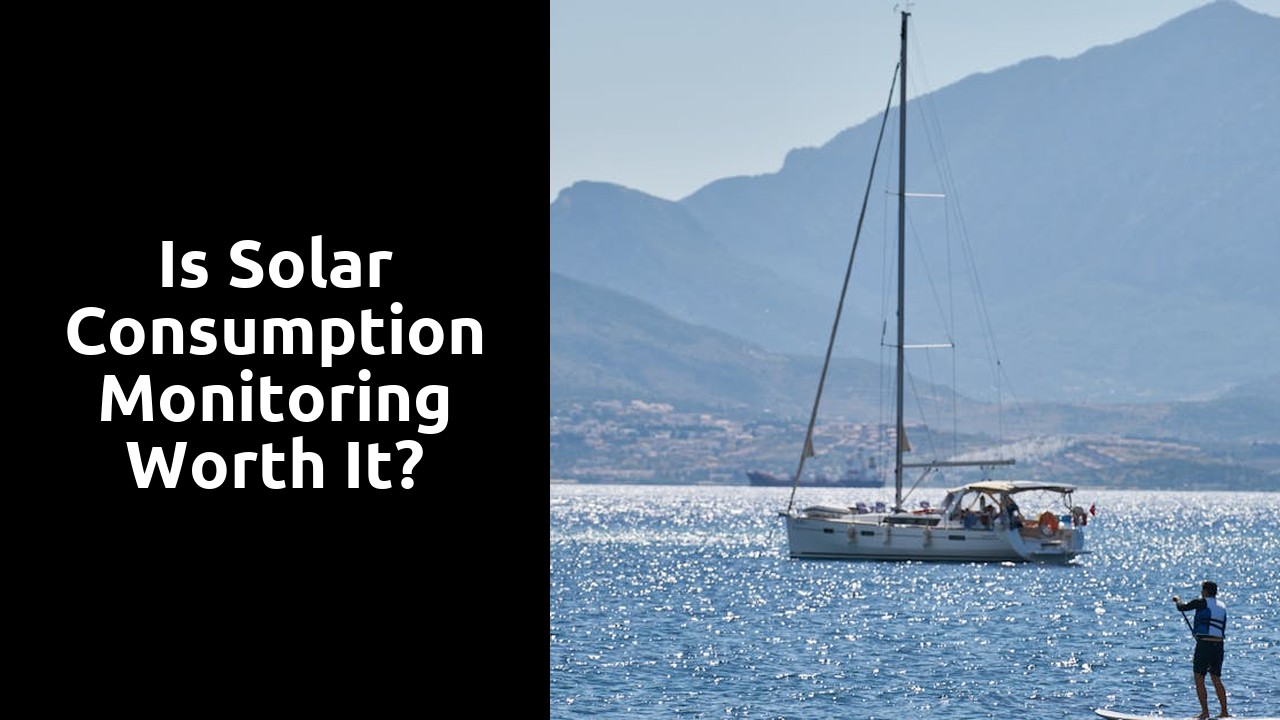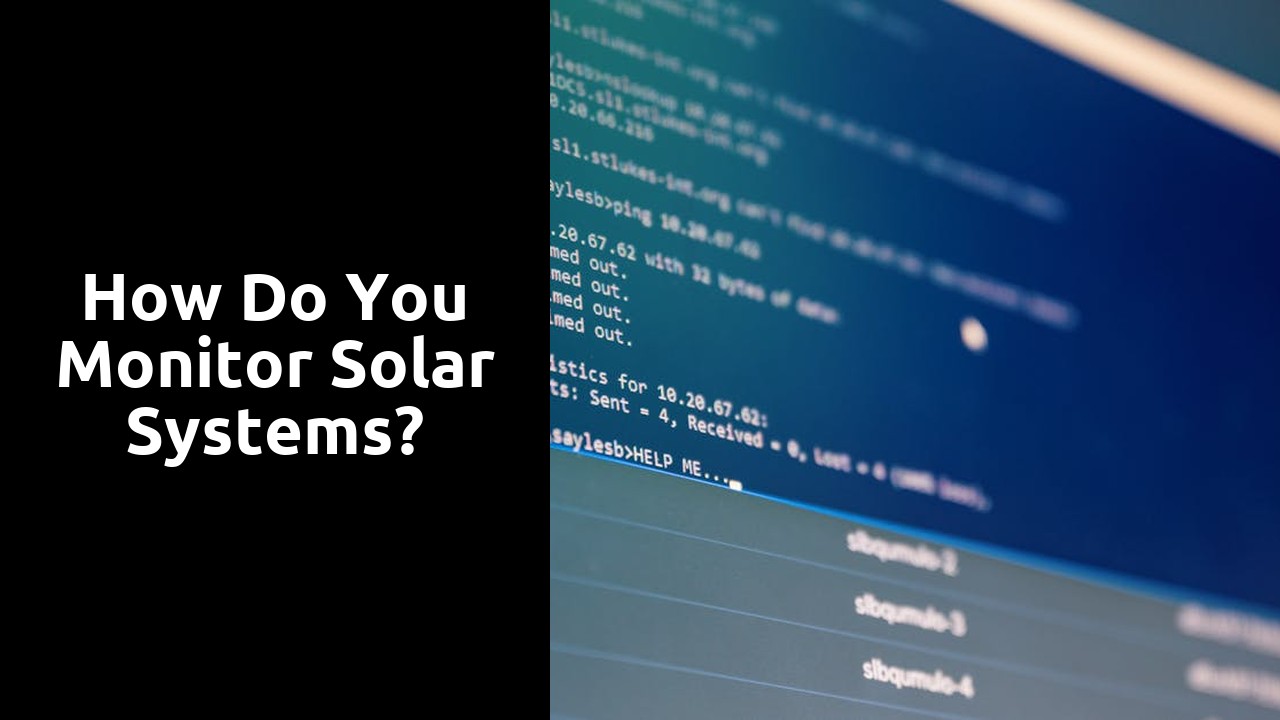
Reallife Examples of Solar Consumption Monitoring Success Stories
When it comes to solar consumption monitoring success stories, a prime example lies in the realm of residential energy usage. With a detailed solar consumption monitoring system in place, homeowners can gain valuable insights into their energy consumption patterns. For instance, by monitoring and analysing the data generated by a Solar Hot Water System, households can optimise their energy usage and make informed decisions to improve efficiency.
Furthermore, in commercial settings, solar consumption monitoring has proven to be a game-changer. By integrating monitoring and analysis tools, businesses can track their solar energy production and consumption in real-time. This enables them to identify opportunities for cost savings, improve sustainability practices, and enhance overall operational efficiency. Solar consumption monitoring, particularly when applied to Solar Hot Water System Monitoring and Analysis, showcases tangible benefits for both residential and commercial users alike.
Can you share any examples of how solar consumption monitoring has been beneficial?
Solar consumption monitoring has proven to be immensely beneficial in various real-life scenarios. For instance, in the residential setting, homeowners have reported significant savings on their electricity bills by closely monitoring their solar consumption patterns. By understanding when energy demand peaks and adjusting usage behaviours accordingly, households have managed to maximise the efficiency of their solar panels, leading to reduced energy costs and a more sustainable lifestyle. Furthermore, integrating solar consumption monitoring with other smart home technologies has resulted in a more streamlined and efficient energy management system.
Another area where the benefits of solar consumption monitoring are evident is in commercial setups. By closely monitoring and analysing solar consumption data, businesses have been able to identify opportunities for energy optimisation and cost savings. For example, through Solar Hot Water System Monitoring and Analysis, companies have gained valuable insights into their hot water usage patterns, enabling them to make informed decisions on how to improve efficiency and reduce expenses. Ultimately, these real-world examples showcase the tangible benefits that solar consumption monitoring can offer in both residential and commercial settings.
Common Misconceptions About Solar Consumption Monitoring
A common misconception about solar consumption monitoring is that it only benefits large-scale solar installations. In reality, even smaller residential solar systems can greatly benefit from monitoring their energy consumption. By tracking how much energy is being generated and used, homeowners can make adjustments to maximise their energy efficiency and potentially save money in the long run. For instance, integrating solar consumption monitoring with smart home technology can allow homeowners to automate their energy usage based on real-time data, leading to better efficiency and savings over time.
Another misconception is that solar consumption monitoring is only useful for tracking electricity usage. While monitoring electricity consumption is crucial, it is equally important to monitor other energy-consuming aspects of a home, such as heating and cooling systems. Solar Hot Water System Monitoring and Analysis, for example, can provide insights into how efficiently a solar hot water system is functioning and help homeowners identify any issues that may be impacting its performance. By having a comprehensive view of their energy usage, homeowners can make more informed decisions about their energy consumption habits and ultimately reduce their carbon footprint.
What are some myths or misunderstandings about solar consumption monitoring?
There is a common misconception that investing in solar consumption monitoring systems is only beneficial for large-scale operations or commercial entities. However, this belief overlooks the fact that even residential homeowners can reap significant benefits from closely monitoring their solar consumption. By tracking energy production and usage patterns, individuals can better understand their electricity needs, optimize their consumption habits, and potentially save money in the long run. It's not just about the scale of the system; it's about the valuable insights that monitoring can provide, regardless of the size of the installation.
Another misconception is that solar consumption monitoring is limited to tracking electricity usage from solar panels alone. While solar panels are a primary focus, monitoring systems can also integrate with other energy-efficient technologies in the home, such as Solar Hot Water System Monitoring and Analysis. By monitoring the performance of multiple systems and appliances, homeowners can gain a comprehensive view of their energy consumption and identify opportunities for improvement. This holistic approach to monitoring goes beyond just solar panels and allows for a more thorough analysis of energy usage throughout the entire household.
Integrating Solar Consumption Monitoring with Smart Home Technology
Solar consumption monitoring plays a vital role in the overall concept of smart home technology integration. One key aspect of this integration is the ability to include solar hot water system monitoring and analysis within the smart home network. By incorporating monitoring capabilities, homeowners can track and optimize their hot water consumption patterns, leading to increased efficiency and cost savings over time. This feature provides valuable insights into usage patterns, empowering users to make informed decisions about their energy consumption and overall environmental footprint.
Moreover, integrating solar consumption monitoring with smart home technology enables seamless coordination between energy sources and consumption. By understanding how solar energy production aligns with household energy consumption, homeowners can effectively manage their energy usage to maximize self-sufficiency and reduce reliance on the grid. This level of integration fosters a more efficient and sustainable approach to energy management, ultimately contributing to a more environmentally conscious lifestyle.
How does solar consumption monitoring fit into the concept of a smart home?
Solar consumption monitoring seamlessly integrates with smart home technology, paving the way for a more efficient and sustainable living environment. Modern households are increasingly adopting solar panels to harness renewable energy sources. By incorporating solar consumption monitoring into smart home systems, residents gain insight into their energy usage patterns and can make informed decisions to optimise their consumption. Additionally, the data retrieved from Solar Hot Water System Monitoring and Analysis can be utilised to automate energy usage based on real-time conditions, enhancing overall energy efficiency.
Moreover, the compatibility of solar consumption monitoring with smart home devices elevates the concept of interconnected living spaces. Through the integration of solar consumption monitoring systems, residents can track their energy production and consumption in real-time, enabling them to adjust their usage habits for maximised efficiency. This seamless integration of Solar Hot Water System Monitoring and Analysis with smart home technology not only enhances convenience but also empowers homeowners to reduce their carbon footprint and contribute towards a more sustainable future.
FAQS
What is solar consumption monitoring?
Solar consumption monitoring is the process of tracking and analyzing the amount of solar energy generated and used in a household or building.
How does solar consumption monitoring benefit homeowners?
Solar consumption monitoring allows homeowners to track their energy usage patterns, optimize their solar energy production, reduce electricity bills, and make informed decisions about energy consumption.
Is solar consumption monitoring worth the investment?
Yes, solar consumption monitoring is worth the investment as it helps in maximizing the benefits of solar energy systems, improving energy efficiency, and saving money in the long run.
Can solar consumption monitoring be integrated with smart home technologies?
Yes, solar consumption monitoring can be integrated with smart home technologies to create a more efficient and sustainable home environment.
How can solar consumption monitoring contribute to a greener future?
By promoting energy efficiency, reducing reliance on non-renewable energy sources, and encouraging sustainable practices, solar consumption monitoring plays a crucial role in creating a greener and more sustainable future.
